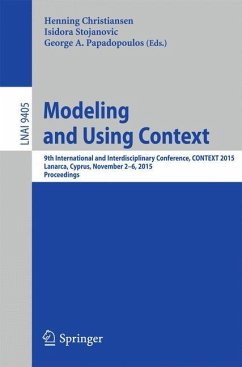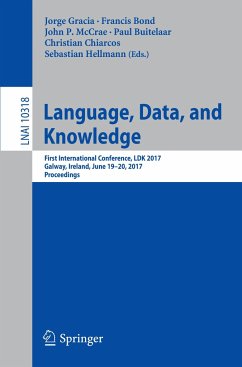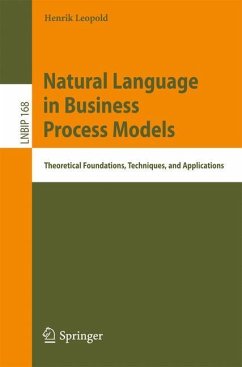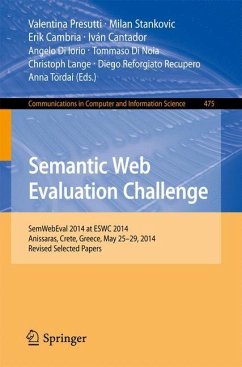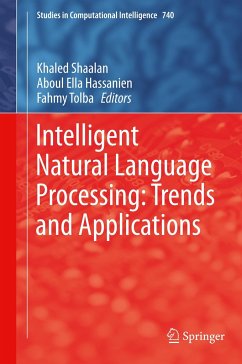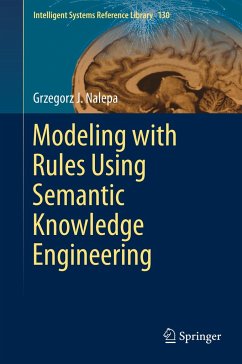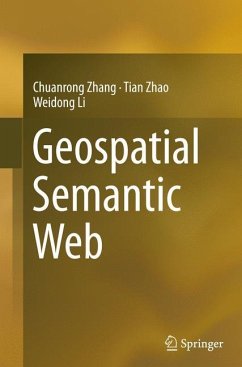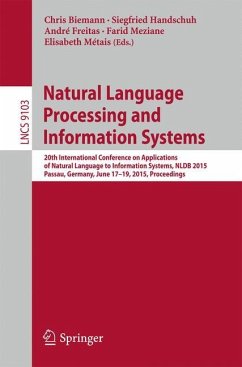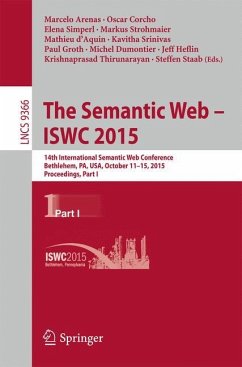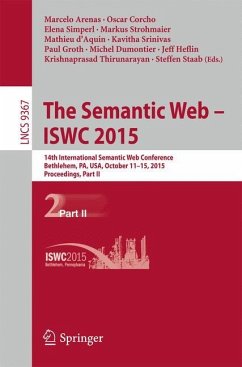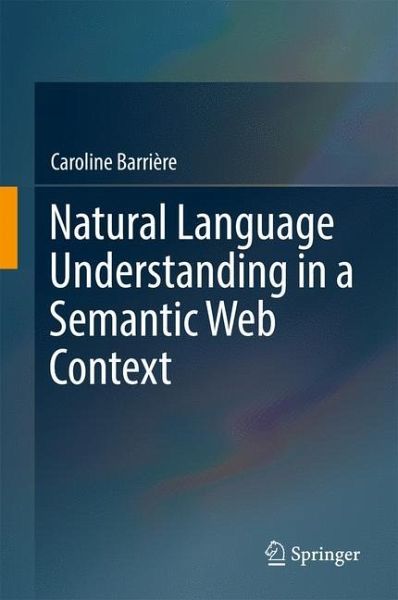
Natural Language Understanding in a Semantic Web Context
Versandkostenfrei!
Versandfertig in 6-10 Tagen
53,99 €
inkl. MwSt.
Weitere Ausgaben:

PAYBACK Punkte
27 °P sammeln!
This book serves as a starting point for Semantic Web (SW) students and researchers interested in discovering what Natural Language Processing (NLP) has to offer. NLP can effectively help uncover the large portions of data held as unstructured text in natural language, thus augmenting the real content of the Semantic Web in a significant and lasting way. The book covers the basics of NLP, with a focus on Natural Language Understanding (NLU), referring to semantic processing, information extraction and knowledge acquisition, which are seen as the key links between the SW and NLP communities. Ma...
This book serves as a starting point for Semantic Web (SW) students and researchers interested in discovering what Natural Language Processing (NLP) has to offer. NLP can effectively help uncover the large portions of data held as unstructured text in natural language, thus augmenting the real content of the Semantic Web in a significant and lasting way. The book covers the basics of NLP, with a focus on Natural Language Understanding (NLU), referring to semantic processing, information extraction and knowledge acquisition, which are seen as the key links between the SW and NLP communities. Major emphasis is placed on mining sentences in search of entities and relations. In the course of this "quest", challenges will be encountered for various text analysis tasks, including part-of-speech tagging, parsing, semantic disambiguation, named entity recognition and relation extraction. Standard algorithms associated with these tasks are presented to provide an understanding of the fundamental concepts. Furthermore, the importance of experimental design and result analysis is emphasized, and accordingly, most chapters include small experiments on corpus data with quantitative and qualitative analysis of the results.
This book is divided into four parts. Part I "Searching for Entities in Text" is dedicated to the search for entities in textual data. Next, Part II "Working with Corpora" investigates corpora as valuable resources for NLP work. In turn, Part III "Semantic Grounding and Relatedness" focuses on the process of linking surface forms found in text to entities in resources. Finally, Part IV "Knowledge Acquisition" delves into the world of relations and relation extraction. The book also includes three appendices: "A Look into the Semantic Web" gives a brief overview of the Semantic Web and is intended to bring readers less familiar with the Semantic Web up to speed, so that they too can fully benefit from the material of this book. "NLP Toolsand Platforms" provides information about NLP platforms and tools, while "Relation Lists" gathers lists of relations under different categories, showing how relations can be varied and serve different purposes. And finally, the book includes a glossary of over 200 terms commonly used in NLP.
The book offers a valuable resource for graduate students specializing in SW technologies and professionals looking for new tools to improve the applicability of SW techniques in everyday life - or, in short, everyone looking to learn about NLP in order to expand his or her horizons. It provides a wealth of information for readers new to both fields, helping them understand the underlying principles and the challenges they may encounter.
This book is divided into four parts. Part I "Searching for Entities in Text" is dedicated to the search for entities in textual data. Next, Part II "Working with Corpora" investigates corpora as valuable resources for NLP work. In turn, Part III "Semantic Grounding and Relatedness" focuses on the process of linking surface forms found in text to entities in resources. Finally, Part IV "Knowledge Acquisition" delves into the world of relations and relation extraction. The book also includes three appendices: "A Look into the Semantic Web" gives a brief overview of the Semantic Web and is intended to bring readers less familiar with the Semantic Web up to speed, so that they too can fully benefit from the material of this book. "NLP Toolsand Platforms" provides information about NLP platforms and tools, while "Relation Lists" gathers lists of relations under different categories, showing how relations can be varied and serve different purposes. And finally, the book includes a glossary of over 200 terms commonly used in NLP.
The book offers a valuable resource for graduate students specializing in SW technologies and professionals looking for new tools to improve the applicability of SW techniques in everyday life - or, in short, everyone looking to learn about NLP in order to expand his or her horizons. It provides a wealth of information for readers new to both fields, helping them understand the underlying principles and the challenges they may encounter.



